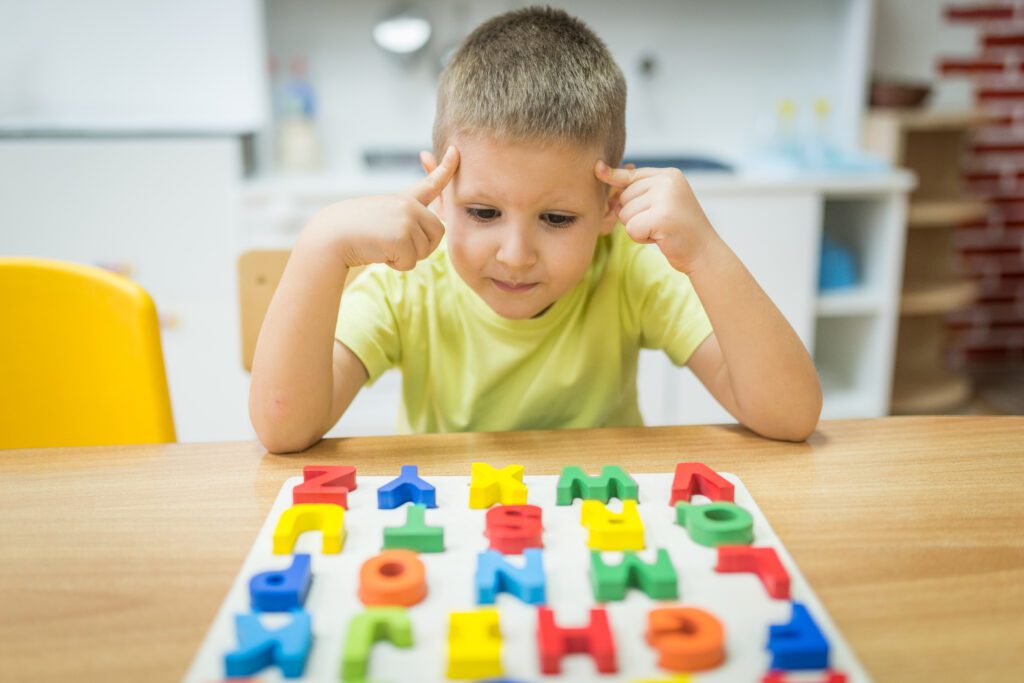Discrete Trial Training, a Specialized Approach
Discrete Trial Training (DTT) is a structured and systematic approach commonly used in the treatment of autism in young children. It is a form of Applied Behavior Analysis (ABA) that breaks down complex skills into smaller, more manageable parts and frequently used by our trained professionals at Phoenix Autism Center.

In DTT, learning opportunities, or “trials,” are presented in a controlled and structured manner. Each trial consists of a specific instruction, a prompt or cue, the child’s response, and immediate feedback or reinforcement.
The key features of Discrete Trial Training include:
Clear Structure:
DTT provides a clear and organized structure for teaching new skills, which is particularly beneficial for children with autism who may struggle with generalization.
Repetition:
Skills are taught through repeated practice of discrete trials, reinforcing learning and promoting skill acquisition.
Prompting and Prompt Fading:
Initially, prompts are provided to help the child respond correctly. Over time, prompts are faded to encourage independent responding.
Reinforcement:
Positive reinforcement, such as rewards or praise, is used to motivate and encourage correct responses, making learning more enjoyable.
Data Collection:
Progress is systematically tracked through data collection, allowing therapists and caregivers to assess the effectiveness of interventions and make data-driven decisions.
The Benefits of Discrete Trial Training
The outcomes of Discrete Trial Training (DTT) for a child with autism can vary based on individual factors such as the child’s specific needs, developmental level, and the consistency of intervention. While it’s essential to recognize that each child progresses at their own pace, the following are some potential positive outcomes that families may observe after implementing DTT:
Skill Acquisition:
DTT is designed to teach specific skills, and one of the primary goals is skill acquisition. Children may demonstrate improvements in various areas, including communication, social interaction, self-help skills, and academic abilities.
Increased Independence:
DTT often focuses on promoting independence by breaking down tasks into manageable steps. As a result, children may gain greater autonomy and exhibit increased independence in daily activities.
Behavioral Improvements:
Positive changes in behavior, such as reduced challenging behaviors or the development of more adaptive behaviors, can be observed. DTT aims to address and modify behaviors through targeted interventions.
Generalization of Skills:
DTT aims to facilitate the generalization of learned skills across different settings and situations. Families may notice that the skills acquired in structured DTT sessions are applied more broadly in the child’s natural environment.
Enhanced Communication:
For children with communication challenges, DTT often includes language and communication goals. Positive outcomes may include improved verbal or nonverbal communication skills, leading to enhanced social interactions.
Increased Social Engagement:
DTT frequently incorporates social skills training, which may result in improved social engagement, better understanding of social cues, and enhanced relationships with peers and family members.
Behavioral Adaptability:
As a child progresses through DTT, they may develop greater flexibility and adaptability in responding to various situations and stimuli. This can contribute to improved problem-solving and coping skills.
Positive Impact on Family Dynamics:
The positive changes observed in the child’s behavior and skills can have a ripple effect, positively influencing family dynamics. Improved communication and reduced stress may contribute to a more supportive and harmonious family environment.
Because the best results often come from a holistic approach that combines various interventions and therapies tailored to the child’s unique needs, Phoenix Autism Center customizes the treatment plan for each child we treat. Ongoing collaboration between our therapists, additional resources such as speech therapists, etc occupational and families is crucial for maximizing the effectiveness of interventions like DTT.
At Phoenix Autism Center, we are committed to supporting you and your child on this journey, offering evidence-based interventions like DTT to empower your child’s potential and foster a brighter future. Contact us today to learn more about how DDT can be an important part of your child’s journey towards growth and independence.
